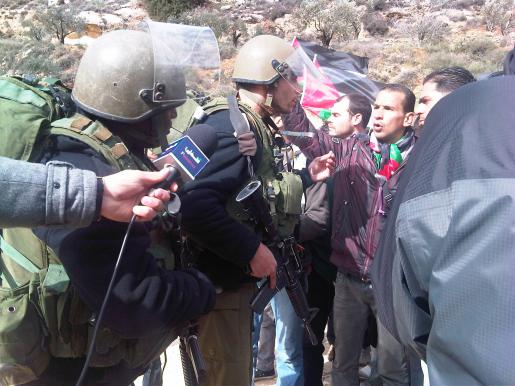Tag: Qaryut
-
Qaryut: 8 year old injured by bomb planted by Israelis
by Lydia 2 April 2012 | International Solidarity Movement, West Bank Yemams father did not have time to respond to his son before the bomb exploded. Ripping through three layers of clothes and even more layers of skin, his father had to watch the tragedy unfold before his eyes. Yemam Mohammad Fatah Azam is just…
-
Settlers attack demo in Qaryut
10 February 2012 | Popular Struggle Coordination Committee Demonstrators in Qaryout attempted to plant olive trees to resist land grab. On the way, they were attacked by settlers and the army. Approximately 100 residents of the Qaryout joined the weekly protest against the occupation this week, aiming to plant olive trees on their lands, as…
-
Celebrating heroes and olives: Qaryut begins to dismantle roadblock
by Aaron 5 February 2012 | International Solidarity Movement, West Bank Hundreds of peaceful demonstrators confronted heavily armed Israeli soldiers this Friday, February 3rd, at a new protest in the village of Qaryut, planting nearly one hundred trees and partially demolishing the roadblock that has obstructed access to the highway since the First Intifada. Although…



